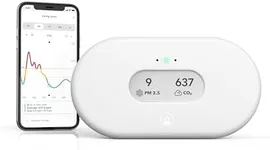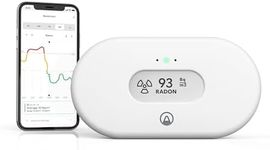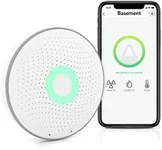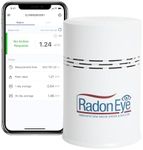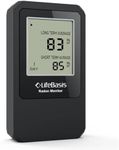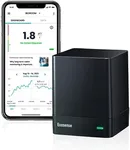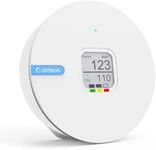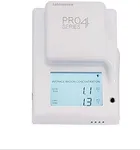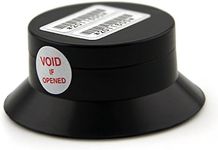Buying Guide for the Best Home Radon Detector
Choosing a home radon detector is an important step in ensuring the safety and health of your household. Radon is a naturally occurring radioactive gas that can seep into homes from the ground, and long-term exposure can increase the risk of lung cancer. A good radon detector helps you monitor radon levels so you can take action if needed. When selecting a radon detector, it's important to understand the key features and how they relate to your needs, such as how quickly you want results, how easy the device is to use, and whether you want ongoing monitoring or a one-time test.Type of DetectorThere are two main types of radon detectors: short-term and long-term. Short-term detectors measure radon levels over a period of a few days to a week, providing quick results, while long-term detectors monitor radon over several months, giving a more accurate picture of average exposure. If you need fast results, a short-term detector is useful, but for a more reliable assessment of your home's radon risk, a long-term detector is recommended. Consider your urgency and whether you want ongoing monitoring or just a snapshot.
Digital vs. PassiveDigital radon detectors provide real-time readings and often display results on a screen, making it easy to track changes over time. Passive detectors, such as charcoal canisters, require you to send the device to a lab for analysis after the test period. Digital detectors are convenient for ongoing monitoring and immediate feedback, while passive detectors are simple and often used for one-time tests. Choose digital if you want continuous awareness, or passive if you prefer a simple, set-and-forget approach.
Sensitivity and AccuracySensitivity refers to how well the detector can pick up low levels of radon, and accuracy is about how close the readings are to the true radon level. Higher sensitivity and accuracy are important for reliable results, especially in areas where radon levels fluctuate. Detectors are often rated for their minimum detectable level and error margin. If you live in a region known for radon or want peace of mind, look for a detector with high sensitivity and low error rates.
Ease of UseEase of use covers how simple it is to set up, operate, and read the results from the detector. Some models require only plugging in and pressing a button, while others may need more steps or calibration. If you prefer a hassle-free experience, look for detectors with clear instructions, simple displays, and minimal maintenance. Consider your comfort with technology and how much effort you want to put into setup and monitoring.
Data Logging and ConnectivitySome radon detectors can store historical data or connect to your smartphone or computer via Bluetooth or Wi-Fi. This feature allows you to track radon levels over time and receive alerts if levels rise. If you want to monitor trends or get notifications, choose a detector with data logging and connectivity. If you just want a basic reading, this feature may not be necessary.
Certification and ReliabilityCertification means the detector has been tested and meets certain standards for accuracy and reliability, often by national or international agencies. Certified detectors are more likely to provide trustworthy results. Always check for certification to ensure the device is suitable for home use and recognized by health authorities. This is especially important if you need results for real estate transactions or health concerns.
